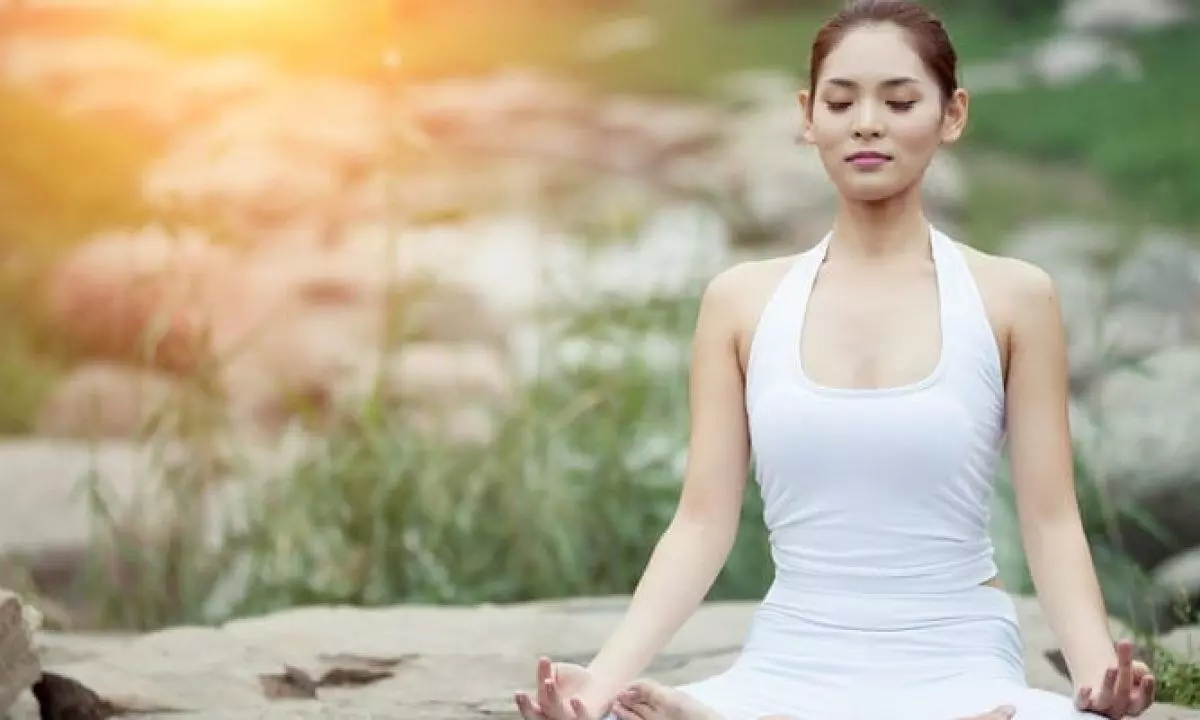Role of yoga & meditation in managing stress

Yoga and meditation play a crucial role in managing stress, offering practical tips and techniques that can be easily incorporated into daily life
Yoga and meditation play a crucial role in managing stress, offering practical tips and techniques that can be easily incorporated into daily life. These practices have gained widespread recognition for their ability to promote mental well-being and provide effective tools for coping with the challenges of modern life.
Firstly, yoga is a physical and mental discipline that combines various postures (asanas), breath control (pranayama), and meditation. Engaging in regular yoga sessions can significantly reduce stress levels by promoting relaxation and fostering a mind-body connection. The simplicity of yoga lies in its accessible nature—anyone, regardless of age or fitness level, can benefit from its practice.
Physical practice through Yoga asanas
Practical tips for incorporating yoga into a stress-management routine include starting with basic asanas like Child’s Pose, Downward Dog, and Corpse Pose. These poses are easy to learn and can be done at home without the need for specialized equipment. Begin with short sessions, gradually increasing the duration as comfort and familiarity grow.
Healing walk
Lift your arms up keeping them at shoulder width distance. Now, start walking with your arms raised in this position and your hands can be up in the air for 1-3 minutes. Initially this may not be possible as you will have to train the muscles of your arms and shoulders and strengthen them. Build up to 1-3 minutes gradually by starting off with a minute increase and so on until you are physically capable enough with the strength required to hold your arms up for 1-3 minutes straight. One round practice will require you to perform a minimum of three sets of these walks of minimum 1-3 minutes each.
Meditation improves mental health
Meditation, on the other hand, is a mental practice that involves focusing the mind to achieve a state of clarity and calmness. Mindful meditation, in particular, has proven to be effective in stress reduction. One practical technique is to find a quiet space, sit comfortably, and bring attention to the breath. You can also practice techniques such as Aarambh Dhyan or Seed Meditation which is an effective way of improving mental health.
Surya Prakash Dhyan
Meditating on sun rays involves sitting comfortably, closing your eyes, and allowing the warmth of sunlight to touch your face. Breathe deeply, focusing on each inhalation and exhalation. Feel the gentle caress of sunlight on your skin, creating a sense of tranquility. As you meditate, visualize the sun’s rays penetrating through you, bringing calmness to your mind. Concentrate on the warmth, absorbing its positive energy. This simple practice can enhance mindfulness, promoting a peaceful connection with nature. It’s a simple way to engage in meditation, embracing the soothing influence of sunlight for mental well-being.
Stress management
To manage stress effectively, consistency is key. Establishing a routine that includes both yoga and meditation can lead to lasting benefits. Set aside dedicated time each day for these practices, creating a space free from distractions. Whether it’s a few minutes of deep breathing during a busy workday or a longer yoga session in the morning, finding what fits into one’s schedule is essential.
Becoming self-aware
Furthermore, integrating mindfulness into daily activities enhances stress management. Mindful eating, walking, or even washing dishes can become opportunities for meditation. Paying full attention to these activities fosters a present-moment awareness that contributes to overall well-being.
Better sleep and rest
It’s important to recognize the mind-body connection in stress management. Yoga and meditation not only alleviate mental stress but also have physical benefits. The relaxation response triggered by these practices can lower blood pressure, reduce muscle tension, and improve sleep quality. In conclusion, the role of yoga and meditation in managing stress is paramount. Practical tips and techniques involve incorporating these practices into daily life through accessible asanas, meditation routines, and mindful activities. Consistency, variety, and recognizing the mind-body connection are essential elements in utilizing yoga and meditation as effective tools for stress reduction. By embracing these practices, individuals can cultivate a greater sense of calm, resilience, and overall well-being in the face of life’s challenges.











